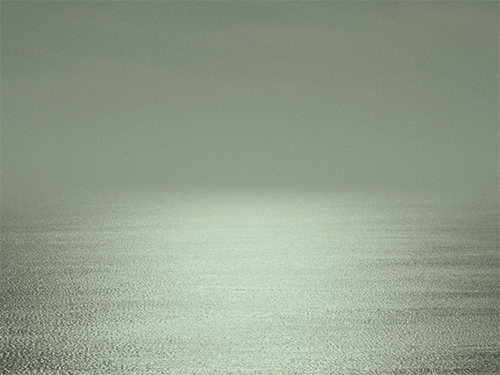
In a popular suburb of Dakar, workers on the construction site of a futuristic tower, without pay for months, decide to leave the country by the ocean for a better future. Among them is Suleiman, the lover of Ada, promised to another.
EN
“Atlantics (2019) is an extension of my first short film shot in Dakar, Atlantiques (2009). In this short film, I filmed Serigne, a young man who is telling his friends the story of his sea crossing. It was the ‘Barcelone ou la Mort’ [Barcelona or Bust] period when thousands of young people were leaving the Senegalese coast for a better future by attempting to enter Spain. Many perished at sea. In 2012, several months after the Arab Spring, riots shook Dakar, a citizens’ uprising took place in Senegal, propelled by the movement ‘Y en a marre’ [Fed Up]. Most of the young Senegalese wanted to oust Abdoulaye Wade and impose his resignation. This citizen awakening marked me because symbolically it reminded us that Senegalese youth had not entirely disappeared. ‘Y’en a marre’ turned the page on the dark chapter of ‘Barcelone ou la Mort’. For me, somehow, there were not the dead at sea on the one hand and young people marching on the other. The living were carrying the dead within them, who had taken something of us with them when they went. It was one single, collective story. That’s what I wanted to express in Atlantics.”
Mati Diop1
“Her Atlantique(s) attend to the horror of the bodies of water between and around Africa and Europe as unsettled, accumulative graveyards—as waters of bodies. Specifically, the context for the experiences related in the short and the source for the narrative of the feature was the apex of attempted crossings from Senegal to Spain in the early 2000s, which came to be accompanied by the grim statement “Barça ou barsakh” (“Barcelona or death”). The films oppose the colonial inheritance of dependency, corrupt governments, and a climate emergency. The spectral lyricism of Diop’s cinema is a haunting mechanism that reveals the extent to which the catastrophes of colonialism have never stopped happening. It addresses the holdovers of historical violences that continue to shape economic, political, and cultural formations, in addition to more intimate considerations of kinship and loss.”
Yasmina Price2
“Atlantique is inhabited by the strength of the originality of its scenario. Mati Diop treats the issue of clandestine immigration from a mystical viewpoint, summoning the jinn (the spirits of the Muslim imaginary) to address one of the reasons for this perilous risk-taking: the lack of perspective for many young Senegalese even when they have a job. Tangentially, the film denounces those who exploit them, rather than simply paying them the equivalent of the fruits of their labor. In the meantime, Ada is waiting for Suleiman, who seems to have returned to the capital. However, she is not the only one to pursue him. The police, embodied in particular by the dashing inspector Issa (Amadou Mbow), is also on his tracks because of a mysterious fire that broke out in Ada’s bridal chamber. In addition to the police investigation interrogation, Mati Diop asks her own questions. What happens to the souls of all those who perished in this great blue vastness that they sometimes saw from their room? What are their final hopes? By presenting their thoughts and their relationships with the living, the filmmaker delivers her own response, plunging the viewer into a magical haze: thanks, among other things, to the repetition of images that return to the sea. Her elder and compatriot, the poet Birago Diop, did he not already say that the dead were not dead? ... In Atlantique, they are in the foam of the sea.”
Falila Gbadamassi3
FR
“Point de départ et d’arrivée du récit d’Atlantique, l’océan représente aux yeux des jeunes et pauvres Dakarois comme Souleiman, l’espace de tous les espoirs. L’au-delà des possibles. La marine surface sans fin, sans fond, où se reflète et se noie le regard, où s’agitent les folles croyances de bonheur et de fortune. Où s’égarent les imaginaires, se perdent la vue, la vie et les corps. L’océan est le liquide vif-argent qui séduit – envoûte – tous les êtres désireux de répondre au large appel de ses promesses. L’Atlantique, ou la titanesque nappe d’eau « aux gouffres amers », donne son titre au film de Mati Diop et, aux hommes – tels les personnages de son récit –, l’envie de se lancer à son assaut, au péril de leur existence, contre un présent avec lequel ils sont fâchés et vers un futur qu’ils souhaitent plus prospère.
Ce plan d’eau métallique sur lequel Souleiman et ses compagnons d’infortune entendent graver leur légende occupe ici le vaste espace aérien du cadre, comme il remplit les pensées, aiguise les appé- tits d’aventures, travaille les corps des hommes en souffrance. Beau et maudit compagnon de voyage, escamoteur de vie et de liberté, dévoreur d’espérances. Valeur chérie des poètes, voleur du chéri des femmes... Sa funeste présence pèse de bout en bout sur la dramaturgie du film ; souvent, une ligne musicale (monocorde) sourd de ses noires profondeurs, s’élève et plane dangereusement au-dessus de sa pâle figure (monochrome) de mort. [...] Son omniprésence dans l’espace de la mise en scène répond à la fascination et à l’angoisse qu’il suscite dans l’esprit des personnages, à la puissante force d’attraction qui s’en dégage, au mur d’amertume et de lamentations qu’il représente aux yeux des femmes de ceux dont le destin est allé s’y briser.”
Philippe Leclerq1
- 1Philippe Leclerq, "Zoom", Dossier de presse du film, 2019.

